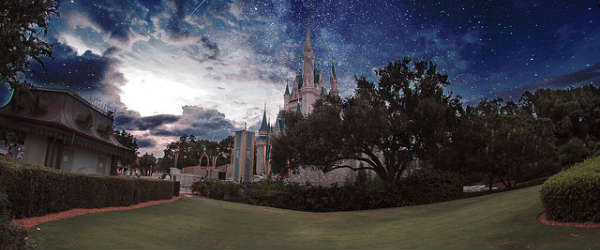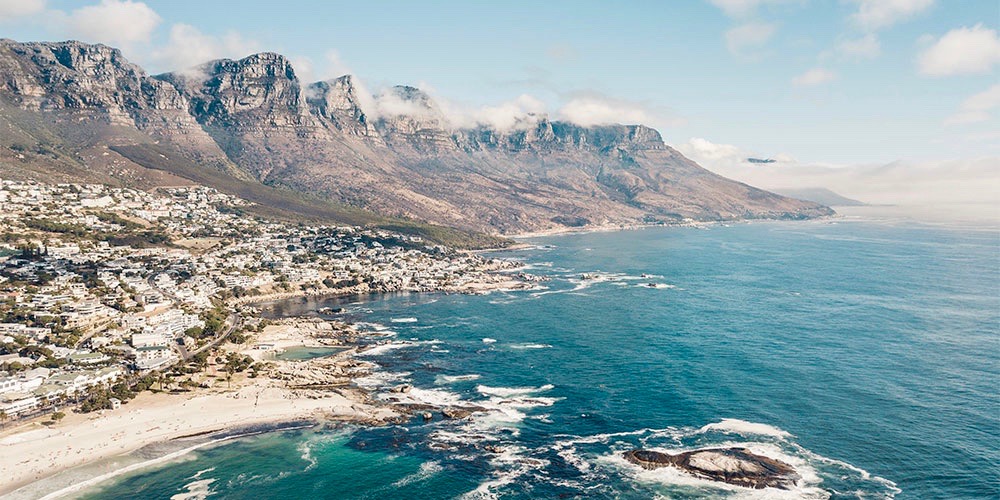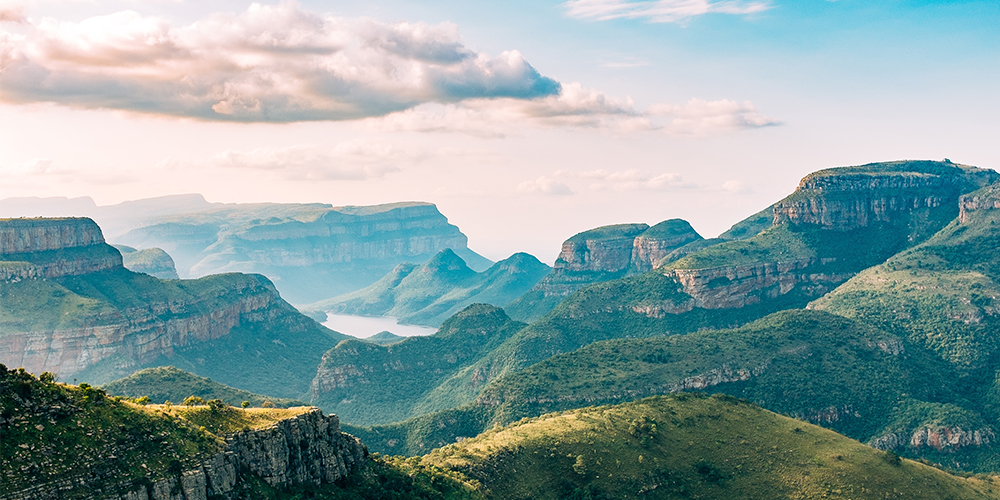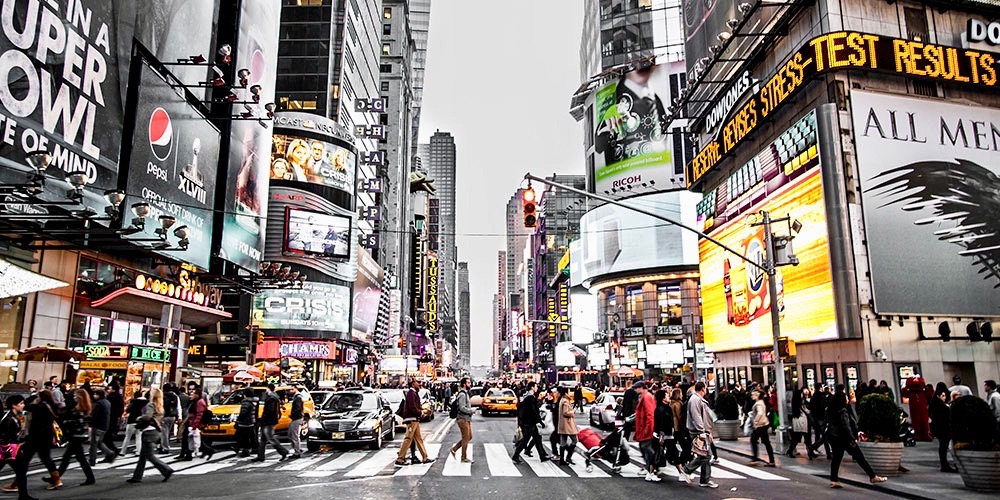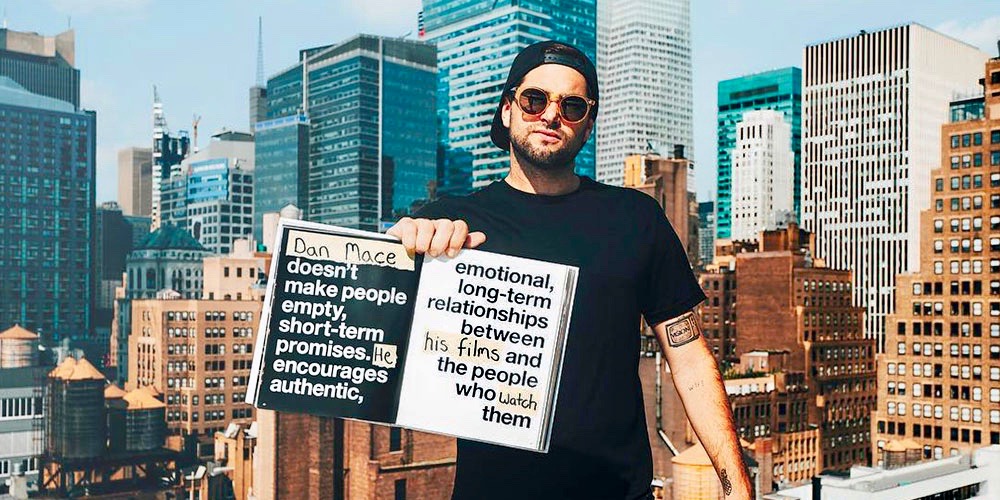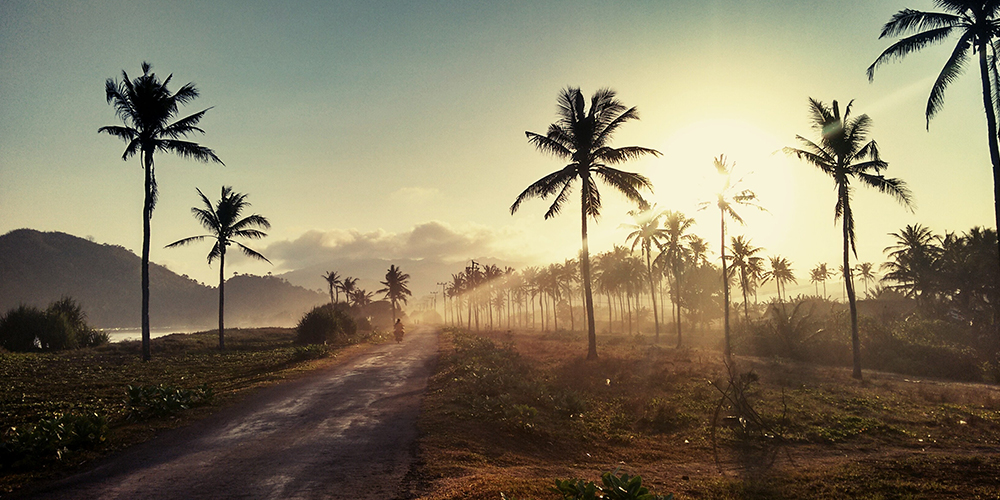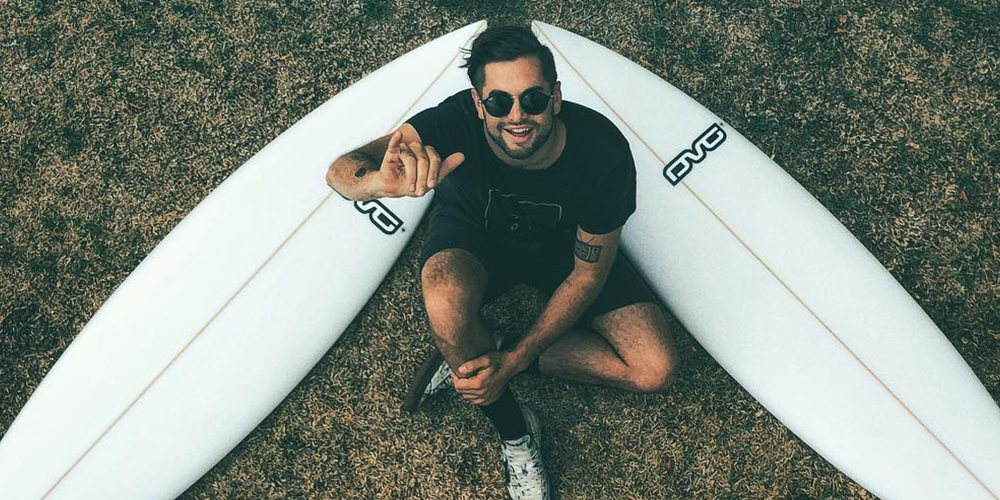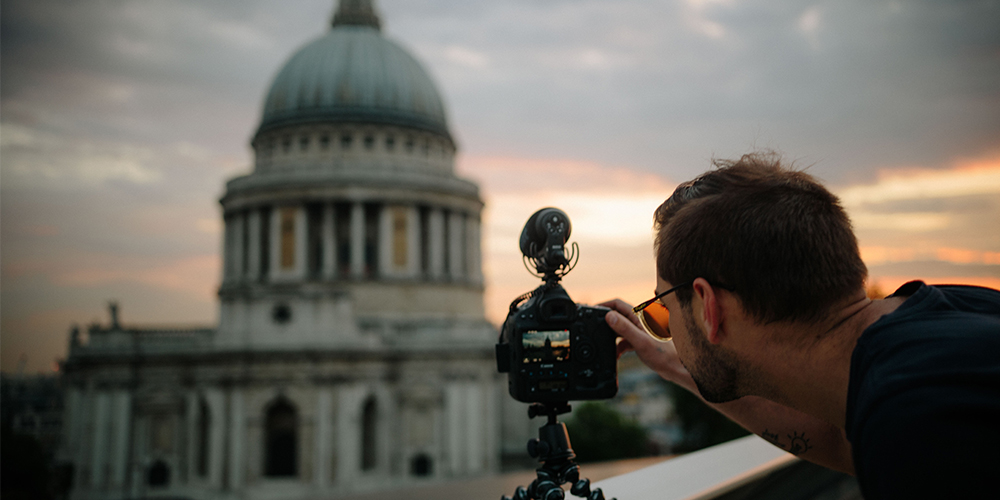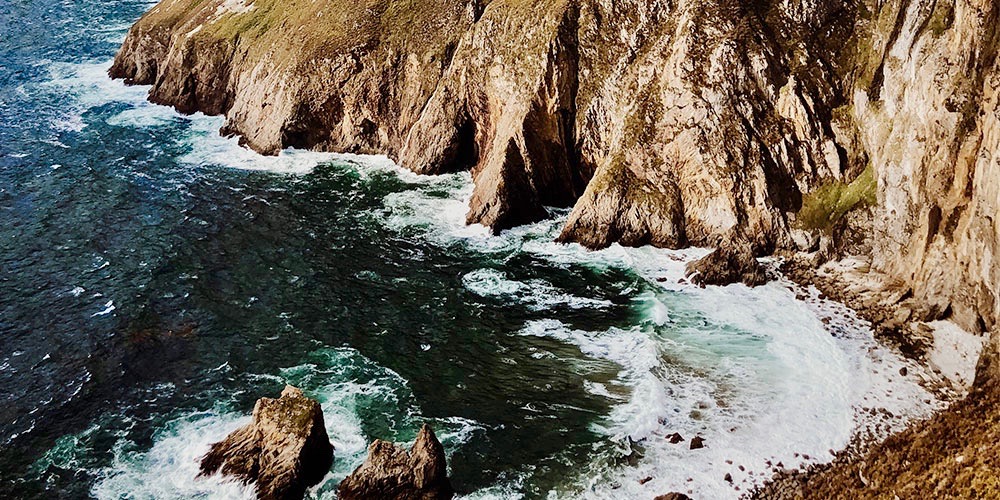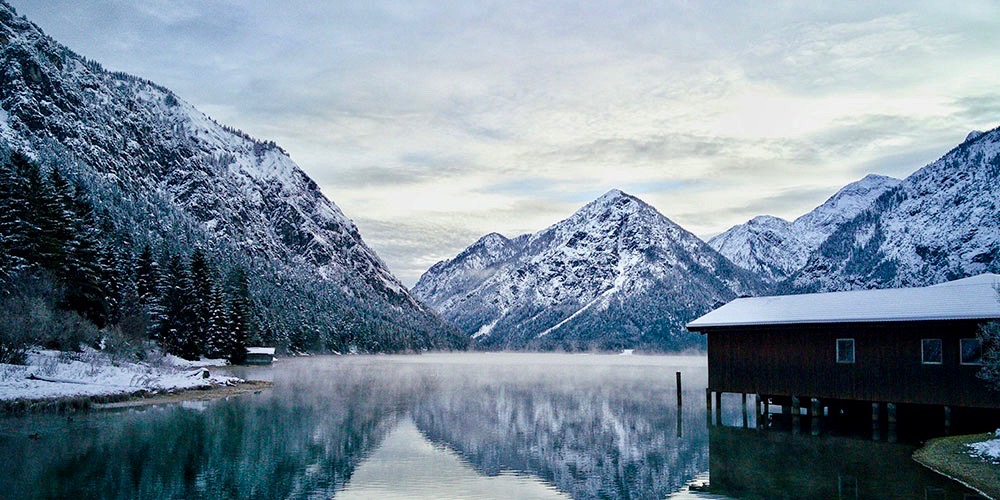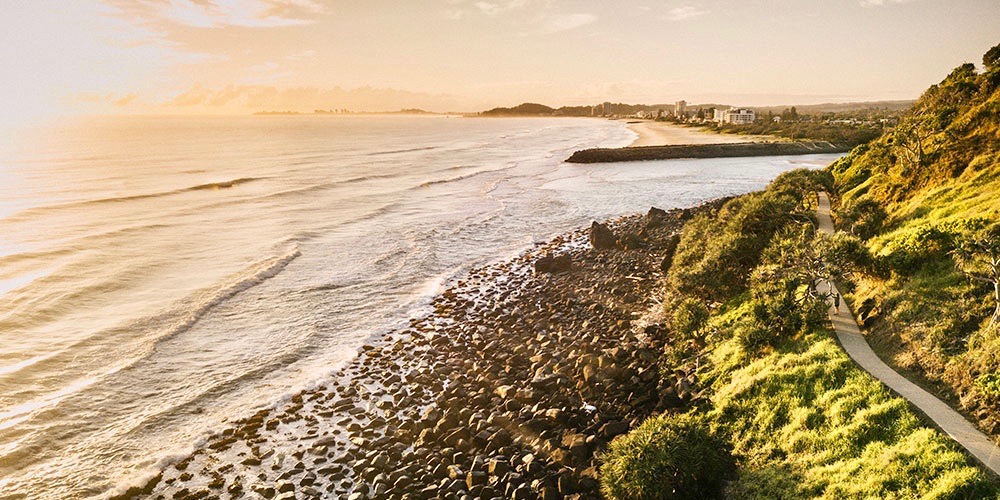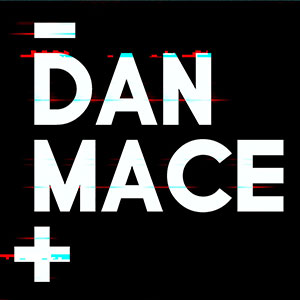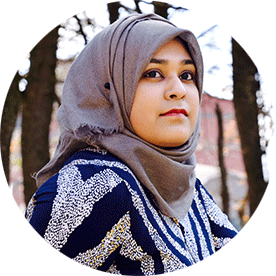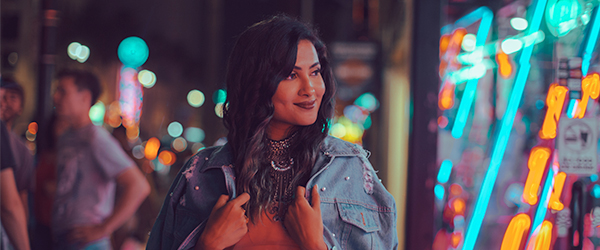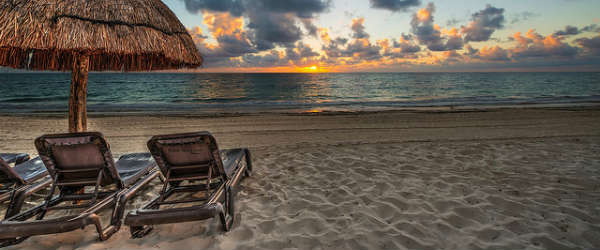Vidya Vox brings together influences of her Indian-American heritage to create music that is refreshingly new, unique and contemporary, ...
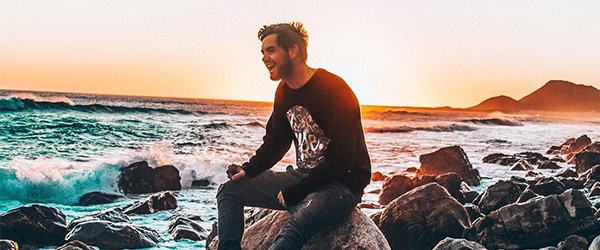
Born and raised in Cape Town, Dan Mace has been behind-the-camera professionally since 16. Still in his twenties, Dan has already directed over 100 commercials, music videos, documentaries, and short films, shooting on four continents for the likes of Tusker, Red Bull, CNN, Roxy and YouTube. His work has over 20-million views on YouTube, where his independent channel, DantheDirector, has over 700,000 subscribers.
Among other accolades, he’s won three Silvers in two years at the Young Directors Awards at Cannes Lions, while his first commercial, Tusker Here’s to Us, has already picked up an African Cristal Film Grand Prix; two Bronzes and a Craft Loerie; two One Show craft merits; Creative Circle Ad of the Month; Ad of the Week from MarkLives; and a Special Mention on Edith’s SA Film Reel. His award-winning short film, Gift, screened at TED Global 2017 between talks by presidents and pioneers. Be sure to check out one of his latest films, Humankind, embedded below.
— — —
Mehnaz Ladha: Kicking it off with your hometown area of South Africa, what really stands out and makes it special and where would you send a first-time visitor?
Dan Mace: I grew up right on the coast, on the very tip in what is known as Cape Point in a tiny town called Scarborough, which is a really small seaside town. Cape Town is about an hour drive north from there. I’ve been to a lot of big cities around the world and Cape Town is in no comparison as even a city in the broad scheme of things. Our city center of Cape Town is about four-blocks wide in comparison to four blocks in downtown Manhattan.
Growing up in Cape Town was really interesting because it’s not a city that was born and bred in the entertainment sphere. We’re quite far behind here in the sense of YouTube and forms of 21st-century entertainment. So, I feel that we have really raw and rich stories that haven’t been told multiple times through different filters and layers, as seen in many other countries where some of the stories are told multiple times through different lenses. Whereas here, there’s a very unique feel to a lot of the stories that are now being told because, for the first time, there’s a light being shone on the interest of entertainment in South Africa. So, that’s really beautiful.
Where would I tell a tourist to go – it’s quite interesting because I got Casey [Neistat] coming down in a week or so. He wanted to do a whole bunch of things that he’s never done before in Cape Town. So, I’ve been doing a whole bunch of research into what’s cool and what’s not. The rad thing about Cape Town is that it’s a place for everybody. There’s the ocean. There’s the desert. There’s the forest. There are wine farms. There’s a tiny city center. [It’s] all in the space of the city-limit circumference.
I think it’s location gold in the sense that a lot of film industries are starting to shoot here now because of the fact that you get such a scope in such a small place. For me, I’m inclined to always be guided towards the ocean. If I had to tell anyone where to go, I would definitely say up the West Coast of South Africa, the lower West Coast. You can pretty much drive the whole way from Cape Town along one road and get up to Namibia.
ML: That must be so beautiful!
DM: Yeah, along the way, there are so many untouched fishing towns and the locals are all super friendly. It feels so far out because these towns are still so preserved and untouched by any form of media. Most of these places also don’t have cell reception, which is awesome. So, I would say that the West Coast of South Africa is the place to go and escape completely. The East Coast is definitely a lot hipper, trendier and happening. You got all the party towns and all the warmer water, not as much wind. The West Coast is ragged, raw and beautiful. I really love that part.
ML: It’s ironic that locals never really engage with their city through tourist activities. I live right near New York City and haven’t done half the things that a tourist would do.
READ MORE: Travel Profile: David Archuleta
DM: I know, it’s crazy! I find wherever I go that locals are always anti-tourist venues and events and anti-tourists in general. I don’t know if that’s a sense of ownership and pride. It’s like a constant battle. Even for me in Cape Town, I don’t attend any tourist venues because I get irritated by those spots. You want to be like, “I know this already.”
ML: Earlier this year, you made a big move to New York City. Describe that transition and what you missed most about South Africa. Also, what did you like most about New York City?
DM: I was in New York for six months, and then I’m going to go back again early next year. What was quite interesting was New York is a lot like the movies from my mind. Something about New York City, and everyone talks about it but it’s really true, is the energy in the streets. I was staying in downtown Manhattan in Tribeca and it was extremely noisy outside my apartment. People were constantly drilling. Some of the time, I didn’t even know what they were drilling. They would drill until like 12 o’clock at night and start first thing in the morning.
But, there was something about that energy. It became part and parcel of the rhythm and the upbeat energy that New York has. That’s what inspired me to make a film on my channel about the real Broadway musical. I went around and recorded all the diegetic sounds and turned it into somewhat of an anthemic soundtrack. NYC is a place that I would go from there, travel to Europe quite a bit and then go back to New York. Every time I left New York, I felt as though I had left something behind. And then, when I arrived back, I was like, “Oh, the energy!” That’s what Casey is almost constantly high on – this New York scene, this energy.
I also felt extremely free and expressive in New York. I don’t think that anybody looked at me or judged me. I felt very open. Like I felt like I could just stand in the middle of the road and scream as loudly as I wanted to and no one would even bat an eye. They would be like, “There’s another crazy person screaming.”
Whereas in South Africa, South Africans are really laid back in one sense. There’s a lot of boxes in South Africa. I don’t want to say it’s still post-apartheid matter and that we’ve got a lot of politics going on with our government at the moment. I don’t know if it’s that or if it’s purely South African culture that we’re a little bit more reserved, but also at the same time, it’s a large level amount of judgment carried. Whereas in New York, it’s like looking at art. The art can be expressive and out there. Some sort of experiment can make the news very quickly if you were slightly against the grain. South Africa is very conformist in many ways. It’s different political groups, but I also think it’s a different mindset and different cultures. But, in saying that, I have to have South Africa in my life. It’s the place that’s my home that I love coming to and relaxing in.
ML: It seems like it provides the balance that we all need in life.
DM: Yeah, it’s a yin and yang. They both have their negatives and positives. South Africa is an amazing place to disconnect. To be able to create a new routine for yourself in a new city takes months. By the time I left New York after six months, I still hadn’t developed a proper routine. As soon as I came back here, within a week, I had my routine back and I’m just used to the lifestyle of South Africa. But, I can definitely see myself getting used to a lifestyle in New York, as well.
ML: So, you’ve been behind the camera since the age of 16. What was your first real exposure to film and how did you get inspired to pursue it as a career?
DM: When I was younger I used to surf professionally and I was sponsored by O’Neill. My dad used to come down to the beach and videotape my sister and me surfing. Those days, we would shoot onto VHS. There was a guy on our road who would edit on VHS and take the tape to cut it up. It was horrible because I had to sit behind him and select which waves I wanted him to choose and which music I wanted him to put in. I used to get really frustrated with this whole thing because I just wanted to do the whole thing myself, but I didn’t have any money to afford any editing software. In those days, Final Cut Pro had just been released and it was actually called Final Cut Express.
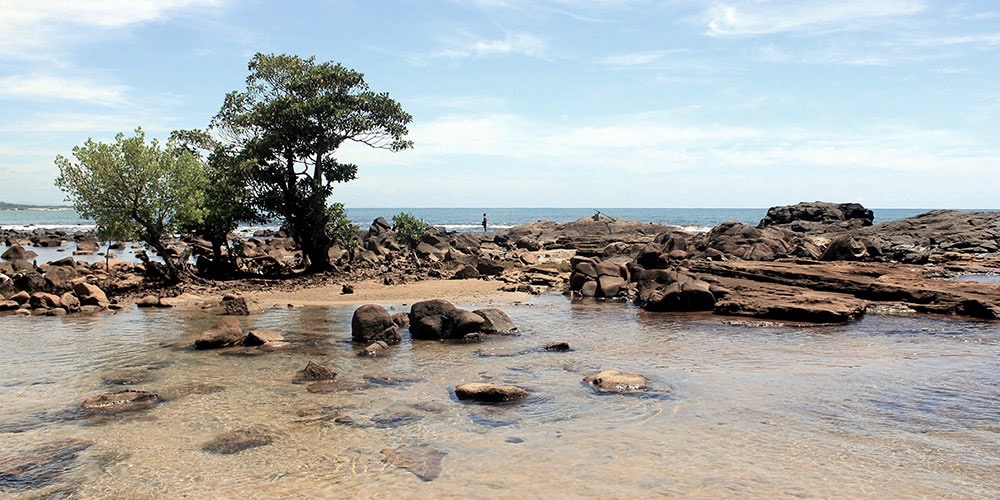 © J.I.
© J.I.
Then, I enrolled in a modeling agency and I booked a McDonald’s commercial. I had this long, blonde, surfer hair. When I was on set there, I saw the director and I saw the camera. I made some money from the ad and I said to my mom that the first thing I wanted to do was to buy a camera and some sort of editing setup. In those days, there was no tutorial or anything so I literally learned by reading the manual.
ML: I can’t imagine having to do that!
DM: Super old school stuff! Then, I got invited when I was 16 by O’Neill to go to Madagascar to come and surf, but also to use my camera and film. I found myself spending the entire trip on the beach and in the local culture and community filming. I made my very first 45-minute documentary.
READ MORE: Miami Profile: Robbie Rivera
Then, I had made up my mind that I didn’t want to complete school, which I actually ended up completing. I don’t know how, but I spent most of my time in the garden or on the beach. Whenever I could, I was making films or music videos for my friends or birthday parties. I remember editing back then. I was more drawn to the process of editing than I was to filming because I was quite shy. But, I knew what I wanted so that I could sit with my edits and get so fixated on showcasing whatever it was that my story was trying to tell.
I used to run out and quickly get the shots that I needed and then spend most of my time behind the computer, which now, I resent sitting behind a computer. I have to though. The only person that can edit a film the way that I want it to be edited is myself. I found that working with Casey a lot too. As much as we really tried to create the perfect cadence between me editing his films and not, we found that we butt heads quite a bit because of the fact that he has such a specific style. And, only Casey Neistat can make a Casey Neistat film.
ML: Switching gears a bit, it’s no surprise that traveling has changed your world. You were able to go to Madagascar at the age of 16 and started making films since then. But, how has traveling changed your mentality and perspective on the world in general?
DM: I want to try to answer this question without being a lame Pinterest quote, you know. I’ve always been with a camera. I’ve always had this lens to hide behind if that makes sense. I think internally, I’m quite an introvert while most people would say I’m an extrovert. I think that that’s just me trying to express myself beyond my insecurities whatever they may be. I’ve been lucky to have a camera in between myself and my surroundings a large part of the time when I am feeling insecure. It’s a great kind of safety net for this large disconnect that I may have when I arrive in a new place and environment that is so new that it usually scares the [hell] out of me.
READ MORE: Travel Profile: Les Stroud of Survivorman
So, I think being a filmmaker makes traveling a lot easier because you have that focus point, something else to take your mind off of the feelings of being out of place. I don’t want to lie and say that I’m this rugged, hardcore traveler that can experience all these things. I’m actually on the other end of that where I do fear travel. I fear feeling uncomfortable. But, I definitely live through the stories that I’m able to create in these places. I think that the person who expresses themselves through my films is kind of the idea of how I enjoy my time away. I kind of live through that. I’m not a nomad traveler that can just get into that. I wish that was my ability. Traveling has given me the ability to definitely express myself in ways I never thought I would be able to because I use those insecurities and vulnerable moments to tell the stories that I tell.
If anything, I travel to make myself uncomfortable. I travel to get into those mindsets of expression to go, “I feel so weird. I need to make a film about this.” That’s where my ideas come from. I guess if I was comfortable and I had to stay at one place like right now I’m in my studio, I can’t be creative, because I’m seeing the same stuff and am comfortable. So next year, we’re doing 20 countries and that’s going to be totally outrageous.
ML: One of the things I admire most about your films is your constant message of positivity and encouragement and inspiration. Humankind, for example, is so simplistic yet deeply profound. Where do get the inspiration for all these videos?
DM: Definitely! For me, when I was much younger, I went to an all Afrikaan school. Afrikaan is a local tongue, one of our local languages here. Generally speaking, in an Afrikaan community, young boys play rugby and, overall, it’s just a very cultural culture. It’s very heritage driven. I was an English South African kid and I didn’t fit in with any of the kids in school. I felt really lonely and I kind of grew up in my head and not having all the friends in the world.
Maybe it’s me internalizing and overanalyzing, but the reason I went into film and the reason why I started creating a community and things like “bru” was because this was my form of the connection I never had when I was younger. I’ve got this kind of hole in me that I’m filling by finding like-minded people through things like filmmaking and the Internet. It’s been so great creating it, a form of community online, and giving it value through the understanding of what it means to be “bru.” What this word really means and what friendship means.
And, all that stuff comes from realizing what feeling a part of something and belonging to something that’s a lot bigger than yourself is. That’s what Humankind was, an experiment. On a larger level, I failed in many ways with that film. I’m still doing a bunch with the content. There was so much content that it was overwhelming. To turn it into a four-and-a-half-minute film, I felt like it was very much stock footage with generic voiceover.
ML: I feel like that’s more of a trailer to what’s coming. As you said, you’re going to 20 countries and Humankind is showing what you’re going to be able to do in the next year.
DM: Yeah! A lot of people believed that the Humankind we created was the project when it was just the starting point to a conversation to see how much engagement there would be and to gain access to a whole bunch of stories in kind of untouched places. Next year, the new series is all about community and collaboration. Each and every film is a collaboration with a local from whichever area we’re going to be traveling to. The idea is seeded through a global audience that is geotagged on a map.
So, everything from content to execution is large levels of collaboration the whole way through. That’s the only way I really feel that I can take my level of being engaging, vulnerable and speaking about issues on an eye level that now I can actually go meet with people and create, not just be a face on the other side of the screen. I want to break through that fourth wall and really create on a person-to-person basis.
READ MORE: Travel Profile: CloZee
ML: That’s incredibly exciting! Have you ever taken a moment to stand back and see the magnitude of everything you’re doing? What’s the most meaningful part of being a filmmaker?
DM: Sometimes. I think it’s scary. I don’t know why I haven’t done that. I’m maybe scared that I’m not going to be where I want to be. Or, the other way around where things are spiraling out of control. My films are personal films to me and how they affect me and a community, friendships and a close circle. As soon as it goes further and further, it’s a scary thought not knowing where your films are viewed and who is viewing them. Reading a comment on YouTube is one of the scariest things you could possibly do. I started doing that and it started to hurt my feelings because I would have my films on such personal things.
ML: Essentially, you’re putting this videos out there for the world to judge and criticize.
DM: Yeah, I’ve gotten myself to a point where I’ve desensitized myself to comments, which in one part is really sad. The great comments don’t mean as much as they would because I’ve desensitized myself to the negative ones. That’s why I don’t want to stop and look back because I don’t want to desensitize myself through the entire process. I’d rather like to believe that I’m on the right path and that I’m doing the right thing because I believe that I am. I try not to be swayed by loads of different people saying different things and what they like and what they don’t like. I don’t want to become a caricature of my character I’ve created for myself. I want to stay true to who I am online.
The other part of the question was what’s the most rewarding thing about being a filmmaker. For me, it’s definitely the ability to be paid to figure out who I am. I think that each film I make, I’m answering some sort of an unanswered question and that takes a long time. All human beings should have the ability to search really deep within themselves and figure out who you ultimately are and what you ultimately want out of life. It sounds really hardcore and deep.
We all live very surface level, especially because we live in such a fast world right now. There are so many forms of escape. You don’t really have to question yourself to be fair. I really want to know who I am and what it is. I search for this deeper happiness and I think that each film is so rewarding because I actually get to research and experience deeper emotions and things about myself that I never used to know. Then, I turn that into a film and generally, the film turns into something a lot lighter than what the experience has been because people are scared of deep [feelings].
ML: Let me ask you, what has been your most memorable filmmaking experience?
DM: I would say Gift, which was a little short film. It’s about three minutes long and I made it in 2014. It was my first real experiment into making a short film narrative that wasn’t about myself. Actually, it was about myself. It was just a character within me. I changed the environment and the space of this character that flourishes to be in front of cars at this traffic light, instead of for me which was filmmaking. This kid uses the negative and unique space around him to feel a sense of rhythm. He creates a melody out of the noise.
For me, at the time, that was me experimenting with where I wanted to go with my filmmaking. There’s quite a beautiful connection between the two because what I really want to do and I’m still striving to do that with my films, is create melody online and try to find these small nuances in the noise. When everyone is speaking about negativity, I would like to recognize the negative, I never want to try and live in some fake happy world, but also to find goodness when not many people are finding goodness. That’s what my channel ultimately is. That film was the very first entry for me because it got me some awards. It won some stuff at Cannes. So, at the same time that it won those things, it also helped me realize a lot of [stuff] about myself and where I wanted to go.
ML: Where has been your favorite place to film?
DM: Kenya! I was lucky enough to do a commercial there where we filmed a ridiculous amount in 12 or 13 days. I was there for about a month. But, because we had a large budget, we were able to jump on small planes that were ready to fly us to the most remote places. We traveled to all the 42 tribes through Kenya. It was so remote and so beautiful. The whole process behind it – we had to have a large level of respect to go into and be welcomed by the tribe to be able to film them. And then to never exploit, but also find out what we can showcase and what can’t showcase. That whole journey was just so colorful. I’ve done most African countries, but out of all of them, Kenya was by far the most beautiful. Just so colorful, rich and such friendly people.
ML: So, what have been some of your favorite destinations to visit? Why?
DM: Belfast in Northern Ireland. You just have to be a Game of Thrones fan to enjoy it. It’s just like Game of Thrones. You can go there and feel like you’re living in the 1700s. It’s such an untouched town. The locals are super friendly, almost too friendly.
Then the Gold Coast in Australia, especially if you’re a surfer. For me, it’s definitely one of my top-three locations purely because of the fact that the waves are unlimited. It’s like the surfing mecca. People in Australia, I don’t know. I don’t find Australians the friendliest but the waves were definitely really great.
And, the third would be Austria. There’s a place called Saalbach and I return there almost every second year. My mom is Austrian, so we go there. I was supposed to learn the local tongue, but I’ve never gotten around to it. That’s one thing I wish I would have done in my time to learn languages. Like if I could go back to school, I wouldn’t bother with all the other [stuff]. I would have just purely sat and learned languages. Imagine if you could speak Mandarin? That’s a whole new place to go make films and speak with people.
ML: Think about the untold stories you could tap into with that ability.
DM: Exactly! Actually, now that I’m thinking about the film, I’m going to do that this weekend and research some language courses.
ML: Awesome! I can’t wait to see that film.
DM: Yeah, it’ll be in Mandarin so you better learn!
ML: Definitely! Are there any destinations that you’ve wanted to film in, but you just haven’t had the chance?
DM: There’s a small place in Beijing, China where there are two drivers. One is blind and the other doesn’t have legs. The blind guy piggybacks the guy with no legs and together they are one unit. And, they have planted like 10,000 trees in this local village together. That’s one story I came across a couple years ago and hopefully, in season two, I’ll be able to go find those guys and make that story. So, Beijing is mainly about the story and the people before I go see the actual location.
I traveled to Indonesia a little while back, but I kind of want to go back there for some odd reason. I want to go further north. I want to go up into deeper islands because I don’t feel like I experienced enough of Indo. The Indonesian people are very interesting and I could go into a way more remote area of Indonesia.
ML: I always feel like you go to one place, but you never have enough time there. No matter how much time you spend there, even if it’s for months. There are always places you haven’t seen, stories you haven’t heard.
DM: 100 percent! There’s such a melancholy attached to the ecstasy of travel. From the day I arrive at the airport, I already start counting down the time I have left. That’s why traveling is such an awesome thing because you have to be present for traveling. You’re in the understanding that your experience is transient. It’s bound to end and you are just living in this moment. And, that’s why you have so many glimpses of this presence while traveling because you’re really holding onto that moment. You really just want it to last.
ML: One of our objectives at SunCity Paradise is to bring people together while influencing them to travel by breaking down the cultural divides that are ingrained in our society. So, what piece of advice would you give to people reluctant to travel and how would you persuade them that traveling can change their lives?
READ MORE: Travel Profile: David Boyd of New Politics
DM: I can speak for myself for being really scared to get out of my comfort zone and travel in the beginning, because you never know what’s behind that closed door. I think that one thing is that traveling in my mind has become very safe. If you’ve ever been fearful of traveling, traveling has become very safe because we’re so connected.
My favorite part about traveling is connecting directly with the locals. Social media makes it easier. I don’t want to condemn people finding friends on the internet, but there are risks attached to that. You can scan people pretty well these days online, meet up and get taken around by a local. You can never plan for a holiday 100 percent. You can have a plan with traveling, you’re always going to end up in scenarios that you never expected. It’s a story you can ever only write once it’s over. It’s like the most unpredictable experience. After a trip, the best part to even the lows when you’re traveling, you’ll say, “This doesn’t feel comfortable.” But, when you get back home and are surrounded by comfort, you look back and say, “That was so great! I loved just sitting in the rain out there. I didn’t have real problems there.” That’s life in its purest form. I have so many of those moments once I return from a trip and that’s what the travel bug is, just being addicted to that feeling of being uncomfortable.
ML: Besides surfing, what are you most excited about when visiting a new destination?
DM: If it’s winter, snowboarding if there’s snow. Any sporty things I’m quite a fan of. It all depends. If I’m going away to rest, like in December, Gabs and I are going away for five days to do nothing, that’s my goal. I just want to sit in the spa, have a massage and lay in the jacuzzi. That’s my goal. But, if I have my camera with me, there’s a criterion of things, which would definitely be culture, meeting up with multiple different locals, and then storytelling. That just comes to meeting different people, finding the right person and badgering them until they accept to be in my film, and then making a film.
ML: Apart from season two, what else is coming up in the next few months that your fans can look forward to?
DM: There are six films coming out now in December. It’s going to be a busy month. In January, we’re going to do two films, longer formatted. Then, I’m going to make a pilot for season two, which will launch mid-February to get everyone amped. Then season two kicks off the first of March. Right now, I’m in a space of figuring out how to tell the right story on YouTube. Season one was a good explainer of who I am and what is Dan Mace. Now, I’m doing a lot of brand deals and figuring out how to integrate with brands. Then, season two is pure entertainment value. Season two won’t be diving into my personal story. It will mainly be about my experiences in different countries with different collaborators that I meet. It’s more of this large level of entertainment; 90 percent entertainment and 10 percent deep and emotions. We always have to have that little bit.
— — —
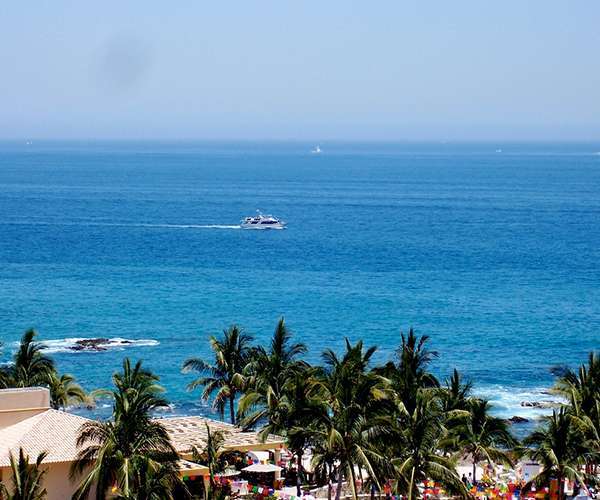

Charmingly set on white-sand beaches, this all-inclusive property perfectly accompanies the Los Cabos coastline.
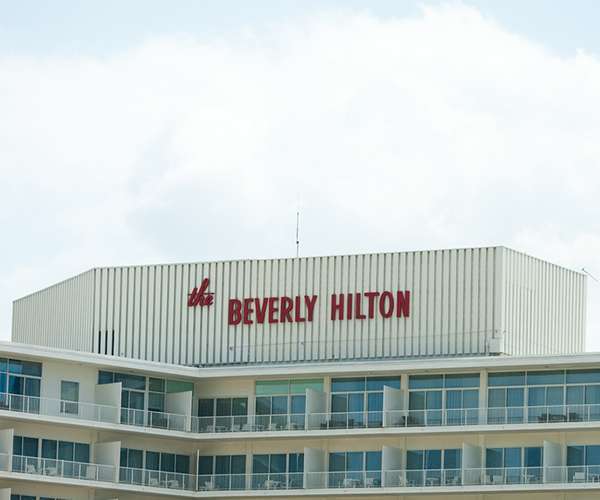

One word to sum up Beverly Hills? Posh. This hotel achieves it with ease. Enough said?
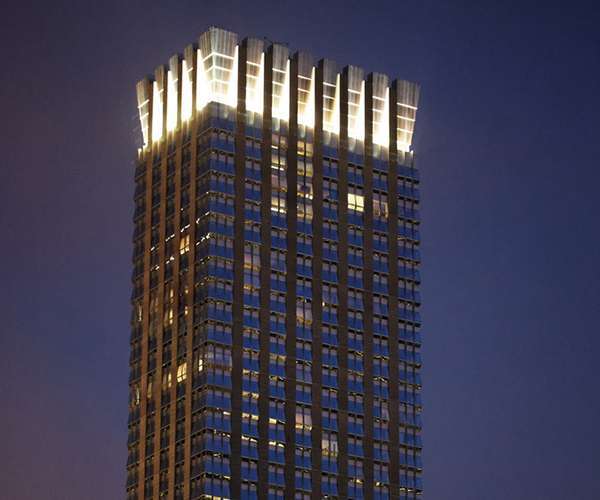

Discerning travelers take note, this beautiful hotel delivers moder sophistication in spades.
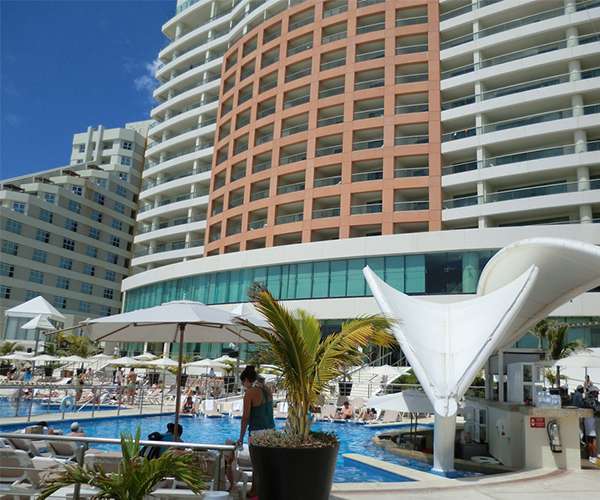

Luxury all-inclusive in paradise anyone? This extravagent resort will undoubtedly be a hit with activities for the whole family.
